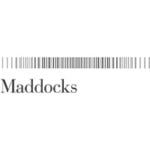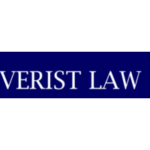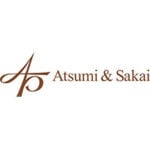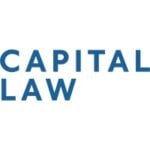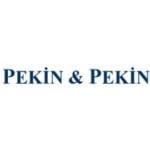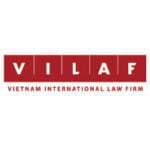-
Please briefly describe the regulatory framework and landscape of both equity and debt capital market in your jurisdiction, including the major regimes, regulators and authorities.
Generally, debt and equity securities offerings in Nigeria are mainly governed by the:
- Investment and Securities Act, 2025 (the “ISA”);
- Securities and Exchange Commission Rules and Regulations, 2013 (as amended) (the “SEC Rules”);
- Companies and Allied Matters Act, 2020 (as amended) (the “CAMA”);
- Trustee Investment Act, Cap T22 Laws of the Federation of Nigeria (“LFN”) 2004;
- Debt Management Office (Establishment) Act 2003;
- Treasury Bills Act, Cap T18, LFN 2004;
- Federal Competition and Consumer Protection Act, 2018 (“FCCPA”); and
- New Rules on Issuance and Allotment of Private Companies Securities (the “New Rules”) and other relevant laws and guidelines.
The Securities and Exchange Commission (the SEC) is the primary regulator overseeing the offering of securities to the public in Nigeria. The Central Bank of Nigeria also regulates commercial paper issuances because of the role of banking institutions in such issuances. The Corporate Affairs Commission is the public registry for companies in Nigeria, and certain filings may need to be made with the commission. Where such securities are listed on any securities exchanges, the relevant rules for the exchange will apply. The approval of the Federal Competition and Consumer Protection Commission will be required where the equity offering would constitute a change of control of the issuer under the FCCPA.
The approval of the relevant sector-specific regulator will also be required where the acquisition of shares meets the threshold set by the applicable legislation. For example, the acquisition of more than ten per cent (10%) shares in a telecommunication company will, pursuant to the provision of the Competition Practices Regulations, 2007, necessitate the prior approval of the Nigerian Communications Commission. In the energy sector, the approval of the Nigerian Upstream Petroleum Regulatory Commission for upstream petroleum companies and the approval of Nigerian Midstream and Downstream Petroleum Regulatory Authority for midstream and downstream petroleum companies under the Petroleum Industry Act, and the approval of the Nigerian Electricity Regulatory Commission under the Electricity Act, 2023.
-
Please briefly describe the common exemptions for securities offerings without prospectus and/or regulatory registration in your market.
The need for a prospectus for securities offerings depends on whether such securities are being offered to the public. For equity issuances, private offerings of securities may not require a prospectus or registration of such a prospectus. Where a prospectus or information memorandum is being prepared, there is no obligation on the issuer to register such prospectus with any regulatory authority.
In the case of debt securities, one exemption for the issuance of securities without a prospectus is treasury bills and other treasury instruments. This is because treasury bills are issued through an auction process governed by the Central Bank of Nigeria and executed on the Scripless Securities Settlement System.
Private offerings of debt securities (as described under Section 97 of the ISA), which will not be noted on a private segment of a securities exchange according to Rule 2 of the New Rules, do not need to be registered with the SEC.
There will not be need for the registration of debt securities where such securities are to be issued by the Federal Government (like the Federal Government of Nigeria Domestic USD-Denominated Bond Issuance Programme in 2024) or are issued or registered in another jurisdiction other than Nigeria irrespective of whether the issuer is a corporate, sovereign or sub-national entity.
-
Please describe the insider trading regulations and describe what a public company would generally do to prevent any violation of such regulations.
Insider trading regulations are contained in the ISA, the Nigerian Code of Corporate Governance, 2018 (“NCCG”) and the NGX Listing Rules where such securities are listed on the Nigerian Exchange (“NGX”). By section 137 of the ISA, an insider includes a person in a relationship with the issuer who is prohibited from buying or selling, or otherwise dealing, directly or indirectly in any securities if he has material non-public information in relation to those securities. An insider or a person in relationship with the issuer purchasing securities with the knowledge of material nonpublic information is not prohibited if such trading is for purposes other than to make a profit or avoid a loss for himself or another person or entering a transaction in good faith as a liquidator, receiver or trustee in bankruptcy.
Corporate boards are required under the NCCG to establish policies on insider trading, related party transactions and conflict of interest. (NCCG, Principle 25). Thus, the board has the responsibility to ensure that insiders do not engage in insider trading, and that disclosures are made prior to any such transactions. In some instances, boards designate some period of the year, that is, about fifteen (15) calendar days prior to any board meeting where price-sensitive matters would be discussed and twenty-four (24) hours thereafter as a “non-authorised or closed period”. During this non-authorised or closed period, such qualifying insiders are prohibited from trading in the securities of the company.
Moreover, if a public company is listed with the NGX, for instance, the NGX Listing Rules require such company to keep a list of “insiders” from the first access to insider information and to update it regularly. Additionally, there is a reporting obligation on the part of the insider to inform the issuer of any transaction that has occurred on his/her account. (NGX Listing Rules, Rule 17.15(c)).
-
What are the key remedies available to shareholders of public companies / debt securities holders in your market?
A shareholder of a public company could commence a derivative action, or a personal action in its capacity or a representative action on behalf of others (CAMA ss. 344 and 346). A shareholder could also petition the court, provided he could prove that the affairs of the company are being or have been conducted in an illegal or oppressive manner (CAMA, s.354).
The remedies available to a debt security holder would depend on the provisions of the terms of the debt issue. In most instances, the trustee(s) would act on behalf of the debt securities holders, and subject to the terms of the issue, the debt could become immediately due and payable.
-
Please describe the expected outlook in fund raising activities (equity and debt) in your market in 2025.
The market has shown notable activity recently. Specifically, there has been an increase in equity issuances in Nigeria in large part due to ongoing bank recapitalisation directive of the Central Bank of Nigeria and with a deadline of April 2026. The efforts by Nigerian banks to meet the deadline and the restriction on qualifying capital have led to a wave of new shares issuances in form of rights issuances, generally public offerings, and private placements.
With respect to debt offerings, while demand for government debt instruments remains robust, the corporate debt market has slowed, with new listings of commercial papers and corporate bonds dropping in 2024 due to high borrowing costs from inflation and monetary policy responses, as well as reduced demand for naira debt instruments due to currency fluctuations. The outlook for Nigeria’s debt capital markets is cautiously optimistic. Federal Government debt instruments are expected to continue attracting strong demand and the corporate market may be showing signs of recovery with increased activity, especially with respect to commercial paper issuances.
-
What are the essential requirements for listing a company in the main stock exchange(s) in your market? Please describe the simplified regime (if any) for company seeking a dual-listing in your market.
For a company to be listed on an exchange in Nigeria, it must first be incorporated as a public company or re-registered from a private company to a public company. This is because a private company, by Section 22(5) of CAMA, is prohibited from offering its securities to the public. There must also be both shareholders’ and board resolution approving the listing of such company on its preferred exchange and the relevant boards of such exchange where such securities should be listed, where applicable. Where the issuer operates in a regulated sector, the approval of its primary regulator may be required.
In the case of the NGX, the company would be required to determine which of the boards of the NGX it prefers to be listed since each of these boards has its specific requirements that the company must meet to be eligible to be listed on such board. The NGX currently has four boards: (a) growth board, which further has two segment viz: (i) entry segment; and (ii) standard segment; (b) main board; (c) premium board; and (d) technology board, which has two segments viz: (i) start up; and (ii) big tech.
In the case of NASD Securities Exchange, the company would be required to complete the NASD Form 2, pay the application fee and annual admission fee and submit the required documents such as the profile of the company, certified true copy of the company’s CAC forms, corporate authorisation for listing, incorporation documents, audited financial statements etc.
For dual listing, the NGX, by Rule 10.1 of the NGX Listing Rules, would apply its rules to an overseas issuer as it applies to a local issuer, subject to additional requirements, modifications or exceptions set out in the Rules. Such an overseas issuer must (a) be incorporated in accordance with the laws of its home country and (b) nominate an individual, with appropriate notification of such appointment to the NGX, to represent it and to perform such duties that the NGX may require. Where the preference for the overseas issuer’s primary listing is or to be on another exchange, the listing on such exchange must have been granted before listing on the NGX can be granted. A security with market capitalisation of at least NGN28 billion or its equivalent must be offered in Nigeria where the listing involves marketing of the securities for which the listing is being sought.
In addition to the requirements of the local law, the issuer must ensure that a minimum of ten per cent (10%) of the issued share capital must be available to the public and held by not less than three hundred (300) shareholders.
-
Are weighted voting rights in listed companies allowed in your market? What special rights are allowed to be reserved (if any) to certain shareholders after a company goes public?
Weighted shares are generally prohibited for all Nigerian companies, irrespective of whether the issuer is listed or not. (CAMA, s. 140). There are no special rights available to certain shareholders once a company goes public.
-
Is listing of SPAC allowed in your market? If so, please briefly describe the relevant regulations for SPAC listing.
SPACs are not specially regulated in Nigeria. In 2021, there were draft rules published by the SEC as well as by the NGX on the registration and listing of securities by SPACs, none of these drafts have been finalised (in the case of the SEC draft rules) or yet to be approved (in the case of the NGX draft rules). Consequently, the operations of SPACs and the issuing and listing of such securities will be regulated in the same manner as public limited liability companies.
-
Please describe the potential prospectus liabilities in your market.
The potential prospectus liability in the Nigerian capital market could be classified into civil and criminal. The civil liability arises where loss or damage is suffered by a person invited to subscribe for securities as a result of a misstatement or an untrue statement contained in a prospectus. Once the damage or loss is established, the (a) directors of the issuer of the prospectus, (b) employees of the issuer who facilitated the production of the prospectus, (c) issuing house and its principal officers, (d) any person who consented to be named and is named in the prospectus as a director of the issuer, (e) promoters of the prospectus, and (f) any person named in the prospectus with his consent as having made a statement included in the prospectus, are civilly liable to pay compensation to all persons who subscribed for such securities relying on the prospectus for the loss or damage they might have suffered due to any untrue statement or misstatement contained in the prospectus. The person who gives consent is only liable in respect of untrue statements or misstatements purportedly made by the person as an expert.
Notably, the civil liability would not apply where (i) a director withdraws his consent in writing before the issuance of the prospectus and it was issued without the director’s authority or consent, (ii) a prospectus was issued without person’s knowledge or consent, and upon becoming aware the person promptly issued a reasonable public notice that it was issued without the person’s knowledge or consent, (iii) a prospectus was issued, but prior to allotment, a person discovers the untrue statement or misstatement in the prospectus and withdraws his consent in writing and followed same with a reasonable public notice of withdrawal, and (iv) a person made a statement as a competent expert who had reasonable ground to believe the statement to be true. (ISA, s. 113).
With respect to criminal liability, the director or an officer who authorises the issue of a prospectus is criminally liable for any untrue statement or misstatement contained in the prospectus, and upon conviction is liable to pay a fine of not less than ₦1,000,000 (One Million Naira) or imprisonment for a term not less than three years or both.
-
Please describe the key minority shareholder protection mechanisms in your market.
Minority shareholder is statutorily accorded certain level of protection, for instance a minority shareholder possesses the power to (through an application to court) obtain injunction, declaration or restrain his company or officers of the company from (a) doing any act or omission that may affect the minority shareholder’s right, (b) any fraud on the company or the minority shareholder where the directors of the company fail to remedy the wrongdoing, (c) entering an illegal or ultra vires transaction, (d) execution of an act by ordinarily resolution, which is required to be by special resolution under the articles of the company or the CAMA, (e) where the directors may likely derive profit or benefit or have done so due to their negligence or breach of duty, and (f) any other act or omission as the interest of justice may demand. (CAMA, s. 343).
The application to court for the protection of minority shareholder’s interest could be through (i) personal action: where a minority shareholder institutes such action to enforce rights due to him personally, (ii) representative action: instituted on the minority shareholder’s behalf and other affected members, or (iii) derivative action: where the action is commenced in the name of the company to right a wrong doing of the majority shareholder.
Other key minority shareholder protection mechanisms may be provided by the shareholders in their Shareholders’ Agreement and/or Articles of Association. Such mechanisms could include tag-along, pre-emption rights, information rights, anti-dilution provisions, and exit/liquidity rights.
-
What are the common types of transactions involving public companies that would require regulatory scrutiny and/or disclosure?
The common types of transactions by public companies that would require regulatory scrutiny and or disclosure include:
- Public Offers: Public companies are required to register and obtain approval of the SEC before issuance of securities to the public. In addition to the registration, public companies are expected to file audited financial statements annually, and quarterly and half yearly reports with the SEC. As regulatory disclosure requirement, public companies are mandated to comply with full disclosure requirements in their prospectus which should inter alia include offer requirements, particulars of the directors and shareholders, historical financial information, statutory and general information of the companies (See, ISA, s. 86 and 88 and SEC Rules, rules, 278, 280, 284, 288, 38, 39, 41 and 42).
- Corporate Restructuring: All forms of mergers, acquisitions, schemes, arrangements and other restructuring operations by a public company are subject to regulatory scrutiny and approval of the SEC. Failure to comply with the disclosure requirement is punishable upon conviction with a fine of not less than N5,000,000 (Five Million Naira) or imprisonment of five (5) years or both. (ISA, ss. 140 and 147).
-
Please describe the scope of related parties and introduce any special regulatory approval and disclosure mechanism in place for related parties’ transactions.
The scope of related parties includes (i) in relation to a company, anybody corporate which is a subsidiary, holding company or a subsidiary of the holding company, and (ii) in relation to individual person, any immediate member of the person’s family, companies over which the person or an immediate family member has control or significant influence and companies where the person or the person’s immediate family member is a key management personnel.
Generally, special disclosure requirements apply to related party transactions. For instance, (i) CAMA imposes an obligation on any director that is directly or indirectly interested in a transaction to disclose to other directors of the company in writing the nature of the director’s interest in the transaction (CAMA, s. 303); (ii) the issuer of a prospectus is required to disclose in the prospectus, any existing or potential related party transaction in relation to the company or its related parties, the nature and extent of the related party transactions (SEC Rule, 288 (9)); (iii) circulars for right issues must also disclose the nature and extent of any related party transaction (SEC Rule, 327 (f)) and (vi) for listed companies subject to exchange rules, disclosure obligations also apply. NGX rules, for instance, require the issuer to make disclosure in its accounts in addition to formal disclosure to the NGX of any transaction that involves related or interested party transaction with a value of or more than five per cent (5%) of the group’s latest audited net tangible assets (Rules Governing Transactions with Related Parties or Interested Parties, Rule 6.0).
-
What are the key continuing obligations of a substantial shareholder and controlling shareholder of a listed company?
Any shareholder who holds for himself or by his nominees about five per cent (5%) or more of the voting rights of a public company will be deemed to be a substantial shareholder. Such a shareholder will be required to notify the company in writing within fourteen (14) days of becoming a substantial shareholder by stating his name, address, particulars of the shares held by the substantial shareholder or his nominee. Further, the substantial shareholder is expected to notify the company upon ceasing to be a substantial shareholder in the company. Similarly, the company is also required to within fourteen (14) days upon becoming aware, notify the CAC in writing of either the fact of a shareholder becoming or ceasing to become a substantial shareholder. (CAMA, ss. 120 and 121)
-
What corporate actions or transactions require shareholders’ approval?
The corporate actions or transactions that require shareholders’ approval include: (a) alteration of the memorandum and articles of association of a company (CAMA, ss. 50 and 51); (b) change of name of the company (CAMA, s. 30); (c) increase in or reduction of share capital (CAMA, ss. 128 and 131); (d) major asset transactions which are transactions outside the usual scope of business of the company and is fifty per cent (50%) percent or more of the book value of the company’s assets (CAMA, s. 342) and (e) appointment and removal of directors (CAMA, ss. 285-288). However, the shareholders may in the articles of the company, delegate any of such powers to the board.
-
Under what circumstances a mandatory tender offer would be triggered? Is there any exemption commonly relied upon?
Generally, the circumstances triggering a mandatory tender offer will be where (i) a person acquires thirty (30%) or more of the voting rights in a public company (whether by a series of transactions or not); and (ii) a person (acting in concert with another) acquires shares which combined equals thirteen per cent (30%) or more of the voting rights of the company (ISA, s. 142).
The common exemptions from a mandatory tender offer includes: (i) where the acquired shares under the bid are shares in a private company; (ii) where an ailing company undertakes a private placement (with the approval of SEC), which result in acquisition of more than thirty per cent (30%) of voting rights in the company; (iii) conversion of convertible securities with the approval of shareholders in general meeting; (iv) where holders of shares with at least fifty per cent (50%) or more of the outstanding voting right in the comp-any resolve in writing that they will accept the bid; and (v) where the bid is to fewer than twenty (20) shareholders representing sixty per cent (60%) of members of the target company (SEC Rules (Amendment 2021), Rule 4 (3)).
-
Are public companies required to engage any independent directors? What are the specific requirements for a director to be considered as “independent”?
Yes, public companies are required to appoint at least three (3) independent directors (CAMA, s. 275). Further, the extant corporate governance standards (the NCCG and SEC’s Code of Corporate Governance for Public Companies in Nigeria) also require public companies to ensure the appointment of independent director(s) on the board.
An independent director is someone (including their relatives) who, in the last two years: (i) was not an employee of the company; (ii) have not made or received from the company payments exceeding N20,000,000 (Twenty Million Naira); (iii) does not directly or indirectly own more than thirty per cent (30%) of the company’s shares; (iv) was not an auditor of the company; and (v) does not own more thirty per cent (30%) interest in any entity that receives or pays an amount exceeding N20,000,000 (Twenty Million Naira) or act as a partner of the entity (CAMA, s. 275(3)).
Further qualifications for such an independent directors are contained in the NCCG, to wit, (a) must not own 0.01% of the paid up share capital of the company (b) does not represent a shareholder with significant influence on the management of the company, (c) has no material business relationship with the company in the preceding five (5) years, (d) has not served at any directorate level or above of any regulator of the company within the last three (3) years, (e) has not served the board of the company for more than nine (9) years, and (f) does not provide consultancy or professional services to the company or its group other than in his capacity as a director (NCCG, Principle 7).
-
What financial statements are required for a public equity offering? When do financial statements go stale? Under what accounting standards do the financial statements have to be prepared?
Public companies are generally required to file their audited financial statements with the SEC periodically or annually. (SEC Rules, r. 38). During a public offer, the financial information in the prospectus will usually include extracts of the audited financial statement of the issuer as part of its financial information. The contents of a financial statement are: (a) balance sheet; (b) income statement; (c) statement of changes in equity; (d) cash flow statement; (e) explanatory notes and supporting schedules. In addition, the financial statements are required to compare results across three (3) financial years. (SEC Rules, r. 419).
Financial statements must not be older than nine (9) months at the time of offer. If the period from the last financial statements to that of the offer exceeds nine (9) months, an interim financial statement is required to cover the remaining period, with at least six (6) months of the financial year audited.
The Financial Reporting Council of Nigeria sets the financial and accounting reporting standards for Nigeria. Currently, Nigeria adopts the International Financial Reporting Standards.
-
Please describe the key environmental, social, and governance (ESG) and sustainability requirements in your market. What are the key recent changes or potential changes?
ESG compliance is required by statutes, codes, and principles and guidelines. For instance, the Climate Change Act, 2021 (“CCA”), which focuses on the environmental framework, requires companies with at least fifty (50) employees to put in place measures to meet the annual carbon emission target and submit annual report on steps taken to meet this target. The National Council on Climate Change is empowered to create policies and programmes on climate change, determine fines payable for non-compliance, and take steps to enforce non-compliance. (CCA, s. 24). In addition, a Climate Change Fund is established, among others reasons, to conduct assessment of climate change impact on vulnerable communities and population and incentivize companies which support transitioning to clean energy.
Further, the Nigerian Code of Corporate Governance requires board of companies to establish policies on social, ethical, safety, working conditions, health, environmental responsibilities, and addressing corruption. The corporate governance report must also indicate sustainability policies on ESG activities. The Nigerian Code of Corporate Governance applies, among others, to public companies, private companies that are holding companies of public or regulated entities, and companies with annual turnover of at least NGN 30 billion.
There are also sector-specific ESG guidelines in Nigeria. For instance, the Central Bank of Nigeria issued the Circular on the Implementation of Sustainable Banking Principles by Banks, Discount Houses and Development Finance Institutions in Nigeria on September 24, 2012 as well as the Nigerian Sustainable Banking Principles 2012 to banks, discount houses and development finance institutions to deal with environmental and social risk exposure at workplace, during clients’ engagements with customers and across sectors, and partnership with other financial institutions.
-
What are the typical offering structures for issuing debt securities in your jurisdiction? Does the holding company issue debt securities directly or indirectly (by setting up a SPV)? What are the main purposes for issuing debt securities indirectly?
Common debt securities include medium and long-term “plain-vanilla” bonds and commercial papers. In some instances, the bonds terms have credit enhancement elements such as guarantees and other security. A company may issue debt securities directly or indirectly through an SPV, and this decision is based on the preference of the parties in managing risks. On the regulatory part, only a public company could invite the public to subscribe to its debt securities. Most indirect debt issuances, particularly through a SPV, is for the promoters of such SPV to manage financial risk exposure, as well as avoid going public where that is not compatible with the company’s goals and business model.
-
Are trust structures adopted for issuing debt securities in your jurisdiction? What are the typical trustee’s duties and obligations under the trust structure after the offering?
A trust structure is adopted to manage the interests of the investors. The duties of a trustee under the trust deed include managing the trust property on behalf of and for the benefit of the investors, liaising with the issuer, registrar, and the depository, ensure timely payment of principal and coupon, and complying with statutory duties under the Investments and Securities Act and the Trustee Investments Act.
-
What are the typical credit enhancement measure (guarantee, letter of credit or keep-well deed) for issuing debt securities? Please describe the factors when considering which credit enhancement structure to adopt.
A common credit enhancement structure in Nigeria is a third-party guarantee that assures payment in the event of default by the issuer. Under this arrangement, a Deed of Guarantee is entered by the guarantor in favour of the trustee to guarantee the timely performance of the obligations of the issuer under the debt arrangement. If the Issuer defaults in payment when due, the guarantor’s liability is triggered. In addition, it is usual for SPV issuances that the beneficiary parent company/promoter remains an obligor, jointly responsible with the SPV for the payment of principal and interest.
-
What are the typical restrictive covenants in the debt securities’ terms and conditions, if any, and the purposes of such restrictive covenants? What are the future development trends of such restrictive covenants in your jurisdiction?
Usual restrictive covenants in the debt securities’ terms and conditions include(i) prohibition of further use of collateral as security, (ii) obtention of the consent of the trustee, on behalf of the securities holder, when there will be a change of control of the issuer, (iii) obtention of the consent of the trustee, on behalf of the securities holder, during future borrowings exceeding a stated sum, and (iv) subordination of declaration of dividends to settlement of due principal and/or interests.
These restrictive covenants serve the primary purpose of preventing loss or diminution of value of the issuer’s assets/collateral to mitigate the risk of nonpayment of debt securities holders.
Nigeria may witness evolving trends as intangible assets play a more significant role in determining companies’ credit capacity. For instance, due to the growth of technology-based companies, intangible assets, such as intellectual property, receivables, and goodwill, may be used as collateral subject to their acceptability as viable security. In such instances, appropriate restrictive covenants will be adapted to ensure that the value of such intangible assets is preserved. For example, covenants restricting issuers from licensing core intellectual property without consent of the trustee (or even the SEC) may be considered in addition to other securities holders protection provisions In addition, as the environmental, social, and governance framework and compliance advances, debt securities may be tied to the sustainability and performance of the issuer. At the moment, Financial Reporting Council of Nigeria’s Adoption Readiness Working Group is working towards the full adoption and implementation of the International Sustainability Standards Board’s IFRS S1 and S2 by financial institutions in Nigeria by 2030.
-
In general, who is responsible for any profit/income/withholding taxes related to the payment of debt securities’ interests in your jurisdiction?
The security holders bear the tax obligations on interest from the debt securities, while the issuer is responsible for withholding taxes and remitting same to the applicable taxing authorities.
-
What are the main listing requirements for listing debt securities in your jurisdiction? What are the continuing obligations of the issuer after the listing?
Securities offered to the public must be registered with the SEC; additionally, an application must be submitted to the relevant exchange for the admission of the securities to the official list. Furthermore, the issuer needs to be a public limited company or a statutory body and must be duly incorporated under CAMA or recognised as a foreign issuer. A rating from a registered credit rating agency is typically required, and the exchanges generally expect a minimum issue size, including at least fifty per cent (50%) subscription of the issue, relevant corporate approvals, and certain information disclosure requirements as well. Upon subscription and until full redemption, the issuer is required to comply with conditions imposed by relevant regulatory authorities and the terms of the transaction documents. More importantly, the Issuer must give notice of any change that may affect the timely repayment of the securities or the change or addition of parties to the definitive transaction documents.
Nigeria: Capital Markets
This country-specific Q&A provides an overview of Capital Markets laws and regulations applicable in Nigeria.
-
Please briefly describe the regulatory framework and landscape of both equity and debt capital market in your jurisdiction, including the major regimes, regulators and authorities.
-
Please briefly describe the common exemptions for securities offerings without prospectus and/or regulatory registration in your market.
-
Please describe the insider trading regulations and describe what a public company would generally do to prevent any violation of such regulations.
-
What are the key remedies available to shareholders of public companies / debt securities holders in your market?
-
Please describe the expected outlook in fund raising activities (equity and debt) in your market in 2025.
-
What are the essential requirements for listing a company in the main stock exchange(s) in your market? Please describe the simplified regime (if any) for company seeking a dual-listing in your market.
-
Are weighted voting rights in listed companies allowed in your market? What special rights are allowed to be reserved (if any) to certain shareholders after a company goes public?
-
Is listing of SPAC allowed in your market? If so, please briefly describe the relevant regulations for SPAC listing.
-
Please describe the potential prospectus liabilities in your market.
-
Please describe the key minority shareholder protection mechanisms in your market.
-
What are the common types of transactions involving public companies that would require regulatory scrutiny and/or disclosure?
-
Please describe the scope of related parties and introduce any special regulatory approval and disclosure mechanism in place for related parties’ transactions.
-
What are the key continuing obligations of a substantial shareholder and controlling shareholder of a listed company?
-
What corporate actions or transactions require shareholders’ approval?
-
Under what circumstances a mandatory tender offer would be triggered? Is there any exemption commonly relied upon?
-
Are public companies required to engage any independent directors? What are the specific requirements for a director to be considered as “independent”?
-
What financial statements are required for a public equity offering? When do financial statements go stale? Under what accounting standards do the financial statements have to be prepared?
-
Please describe the key environmental, social, and governance (ESG) and sustainability requirements in your market. What are the key recent changes or potential changes?
-
What are the typical offering structures for issuing debt securities in your jurisdiction? Does the holding company issue debt securities directly or indirectly (by setting up a SPV)? What are the main purposes for issuing debt securities indirectly?
-
Are trust structures adopted for issuing debt securities in your jurisdiction? What are the typical trustee’s duties and obligations under the trust structure after the offering?
-
What are the typical credit enhancement measure (guarantee, letter of credit or keep-well deed) for issuing debt securities? Please describe the factors when considering which credit enhancement structure to adopt.
-
What are the typical restrictive covenants in the debt securities’ terms and conditions, if any, and the purposes of such restrictive covenants? What are the future development trends of such restrictive covenants in your jurisdiction?
-
In general, who is responsible for any profit/income/withholding taxes related to the payment of debt securities’ interests in your jurisdiction?
-
What are the main listing requirements for listing debt securities in your jurisdiction? What are the continuing obligations of the issuer after the listing?
